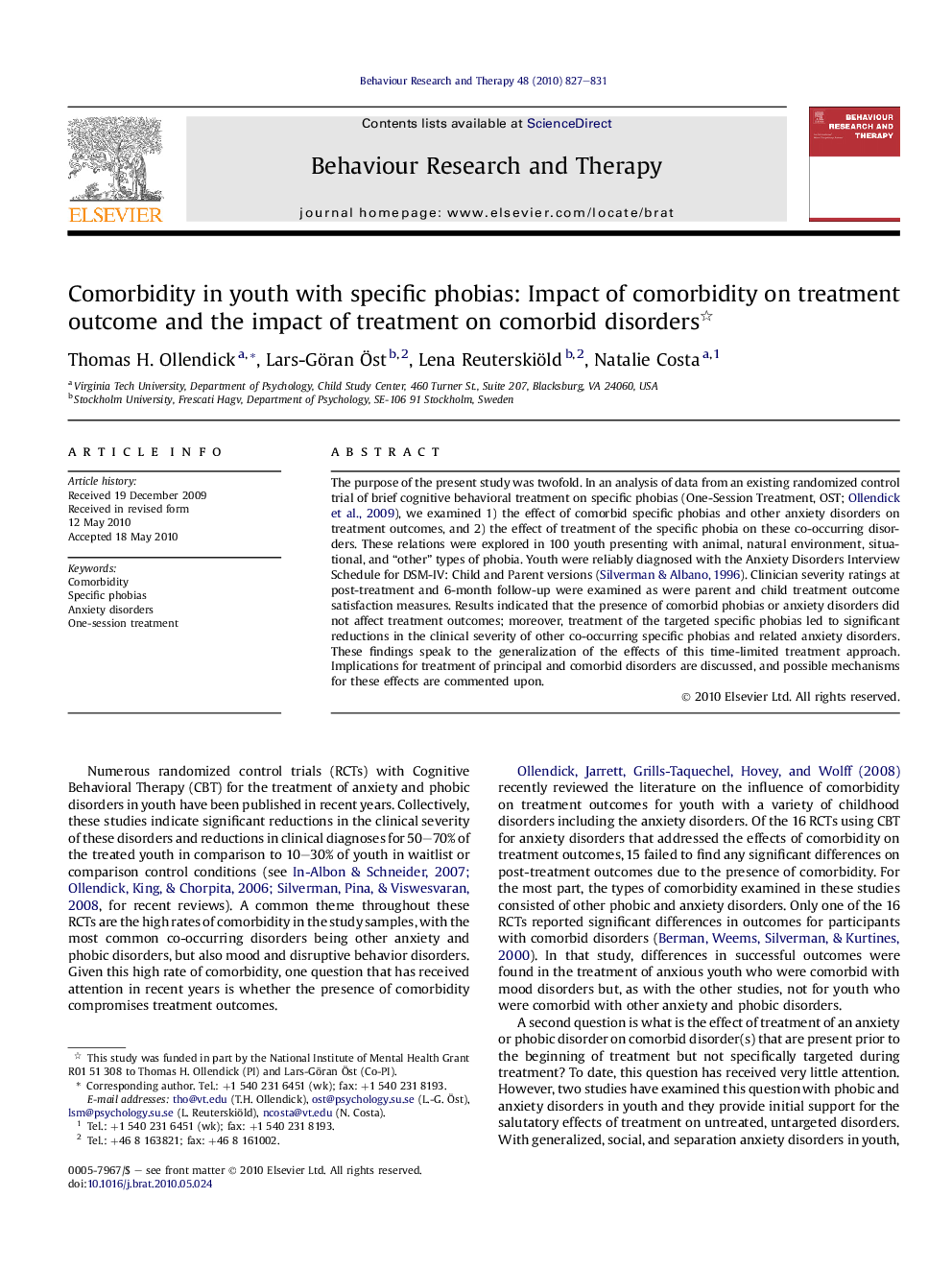| Article ID | Journal | Published Year | Pages | File Type |
|---|---|---|---|---|
| 10444607 | Behaviour Research and Therapy | 2010 | 5 Pages |
Abstract
The purpose of the present study was twofold. In an analysis of data from an existing randomized control trial of brief cognitive behavioral treatment on specific phobias (One-Session Treatment, OST; Ollendick et al., 2009), we examined 1) the effect of comorbid specific phobias and other anxiety disorders on treatment outcomes, and 2) the effect of treatment of the specific phobia on these co-occurring disorders. These relations were explored in 100 youth presenting with animal, natural environment, situational, and “other” types of phobia. Youth were reliably diagnosed with the Anxiety Disorders Interview Schedule for DSM-IV: Child and Parent versions (Silverman & Albano, 1996). Clinician severity ratings at post-treatment and 6-month follow-up were examined as were parent and child treatment outcome satisfaction measures. Results indicated that the presence of comorbid phobias or anxiety disorders did not affect treatment outcomes; moreover, treatment of the targeted specific phobias led to significant reductions in the clinical severity of other co-occurring specific phobias and related anxiety disorders. These findings speak to the generalization of the effects of this time-limited treatment approach. Implications for treatment of principal and comorbid disorders are discussed, and possible mechanisms for these effects are commented upon.
Related Topics
Health Sciences
Medicine and Dentistry
Psychiatry and Mental Health
Authors
Thomas H. Ollendick, Lars-Göran Ãst, Lena Reuterskiöld, Natalie Costa,
